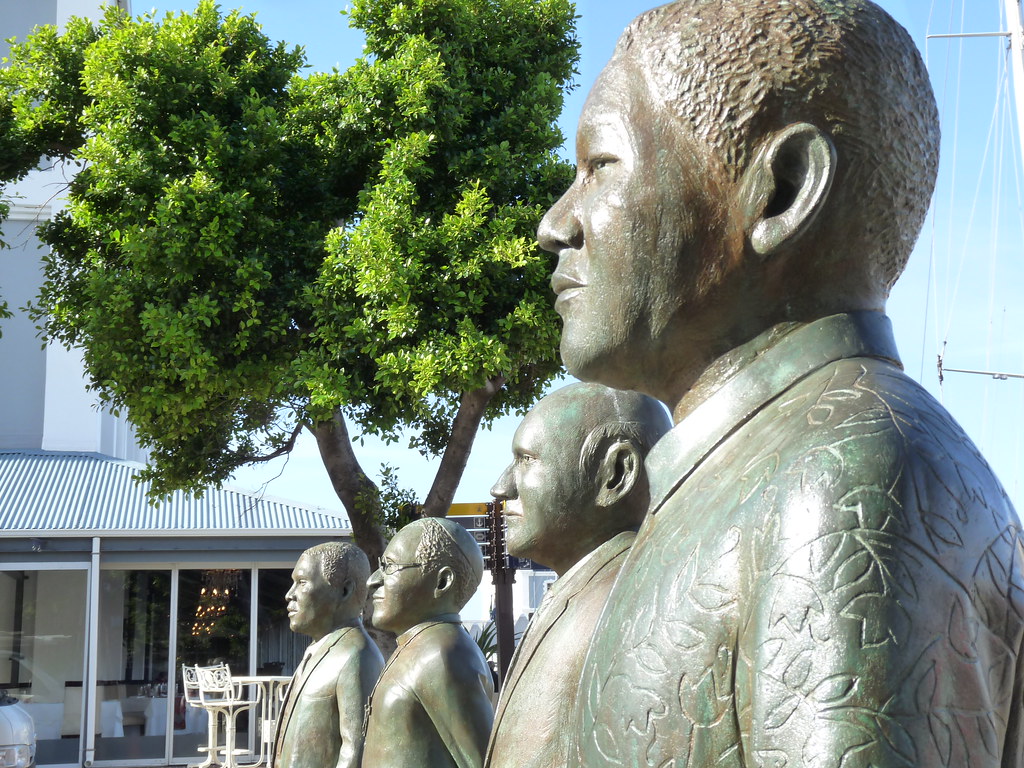Obviously, I’ve already read a lot of things this morning on the death of Nelson Mandela. But for me, this stood head and shoulders above everything else. Personal, honest, obviously written from the heart. It’s from Jonathan Faull on Facebook, and will soon also be on africasacountry.com [I’ll update the link when it is available] [link updated]. Thanks to him for giving me permission to reproduce it here.
Here are Jonny’s memories of Madiba:
I remember not knowing what you looked like; seeing the regime’s footmen erasing your name from walls at sunrise before the paint had dried.
I remember, as a child sitting on the back seat of the car on the way to town, and at the top of Hospital Bend, my aunt pointing to Robben Island and saying that was where he lived; where the government had sent you.
I remember the news saying you were a terrorist, and my parents having to carefully explain to my seven-year-old-self that you were a hero; that the news and the government lie.
I remember the first time I saw you – the first time any of us had seen you for decades – walking free from Victor Verster; fist aloft… and in your smile, the uncertainties, violence, and angst of those heady days somehow dissipating. The spectacle of your release; the joy of a people unleashed; the chaos of your arrival at the Grand Parade.
I remember your words pulling us back from the brink of fratricidal explosion: “This killing must stop… we must not permit ourselves to be provoked by those who seek to deny us the very freedom Chris Hani gave his life for. Let us respond with dignity…” On that day you already were our President.
I remember a year later – almost to the day – walking to school the day after the elections and every person I passed, meeting my gaze and smiling at our new found wonderment.
And ten days later, bunking off school, in school uniform, and heading to the Parade to hear you speak as our State President; immersing myself in a throng of nationhood and unburdened happiness; being hoisted atop shoulders to cling to a lamp post to see you.
I remember the farce of the time that I met you: when while working as a waiter at a State Banquet for Bill Clinton, I abandoned my table and cunningly intercepted you… and hugged you! Before your bodyguards prized the crazy white kid from your smiling and surprised embrace.
I remember when you visited Zackie Achmat on his near-death-bed. You probably saved his life and – through his service – the lives of hundreds of thousands of South Africans in the face of your successor’s madness.
I was there when you had to be hoisted to the stage at UCT to celebrate the life of Steve Biko; when at the conclusion of your speech you announced your “retirement” from public life: “Don’t call me; I’ll call you.”
And I will remember this day – alone and bereft in Washington DC – so far from home, and the people who have come to call you Tata…
Hamba Kahle Madiba.
We will remember. How could we ever forget?

